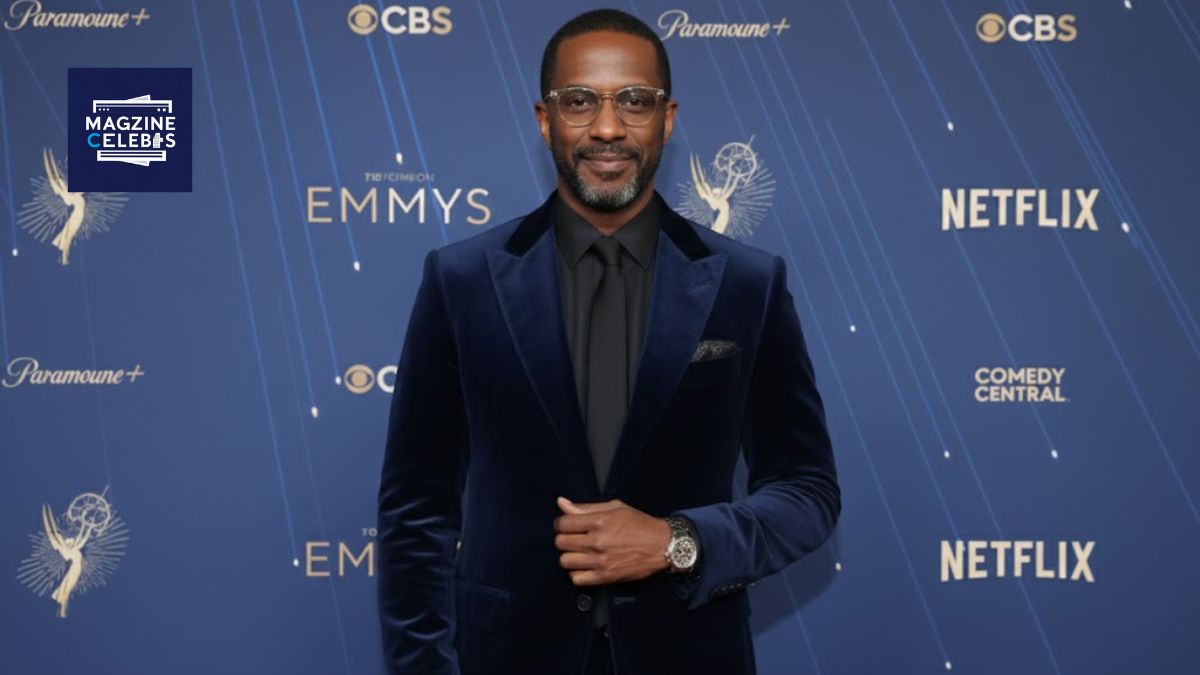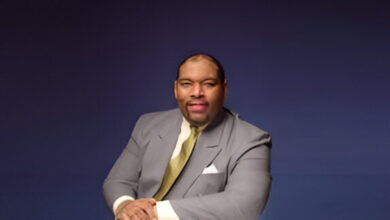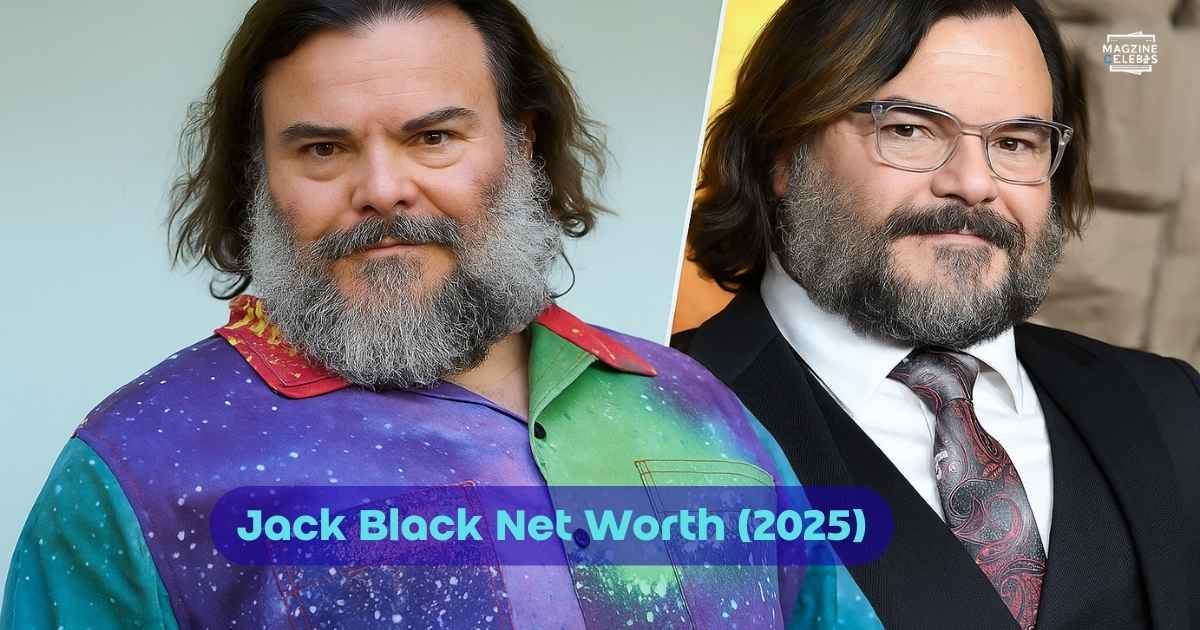Dave Chappelle Biography, Age, Career, Controversies & Net Worth (2025)

Introduction: A Comic Who Turns Tension into Truth
In the world of comedy, few names command as much respect, controversy, and awe as Dave Chappelle. He’s more than a comedian; he’s a cultural commentator who uses laughter as a scalpel—careful, precise, occasionally shocking—to dissect uncomfortable truths. This is the story of how a kid from Washington, D.C., with a notebook full of observations became a generational voice, walked away at his peak, and returned on his own terms.
Table of Contents
Table of Contents
1) Early Sparks: A Childhood Between Books and Jokes
David Khari Webber Chappelle was born in Washington, D.C., to educators and public servants. His father, William David Chappelle III, taught at Antioch College; his mother, Yvonne K. Chappelle Seon, moved between government and academia. The dinner‑table conversations—politics, ethics, identity—later became the bedrock of his material. He studied theatre at the Duke Ellington School of the Arts, where teachers encouraged his stage instincts rather than sanding them down.
2) New York, HBO & Half Baked: The Apprenticeship Years
Chappelle’s real education happened a few steps below street level: the comedy clubs of New York City. The Comedy Cellar and Carolines sharpened his timing; audience silence taught him patience. A breakout on HBO’s Def Comedy Jam announced his arrival. Film roles followed—Robin Hood: Men in Tights (1993), The Nutty Professor (1996)—and then a stoner classic he co‑wrote, Half Baked (1998). These weren’t just credits; they were experiments in voice, character, and control.
3) The Rise, the Retreat, and the Triumphant Return
The Chappelle’s Show Phenomenon
In 2003, Chappelle’s Show detonated on Comedy Central. It felt less like TV and more like a weekly cultural summit. Sketches like “Rick James” and “Prince” weren’t simply funny; they were shorthand for conversations about race, power, and pop mythology. Chappelle’s instinct—let the sketch carry the argument and the laugh—made the show quotable and combustible.
Walking Away at the Peak
Then, at the height of success, he left. The decision was simple to explain and hard to accept: the machine was moving faster than the meaning. He stepped off the set—and out of the narrative—choosing a sabbatical that took him as far as South Africa and as close as his Ohio home. The walkout became legend, but the motive was human: protect the work, and the person doing it.
The Return, On His Terms
Years later, he reentered through side doors—unannounced club sets, surprise theatre shows—until the timing felt right. The comeback wasn’t a single event but a series of stubborn, steady steps. And when the lights finally rose on his streaming‑era specials, Chappelle carried something rare in entertainment: mystique, intact.
4) The Netflix Era: Why These Specials Reshaped Stand‑Up
From 2016 onward, Chappelle’s run of Netflix specials (including The Age of Spin, Deep in the Heart of Texas, Equanimity, The Bird Revelation, Sticks & Stones, and The Closer) set new expectations for what a platform would pay—and how global an audience for stand‑up could be. The art stayed intimate; the reach went planetary. These shows didn’t just trend; they won trophies—Emmys and Grammys—folding critical acclaim into cultural impact (Emmys profile, GRAMMY.com artist page).
Alongside peers like Kevin Hart and Chris Rock, Chappelle helped redraw the business map for modern stand‑up: specials as tentpoles; tours as rolling referendums.
5) On the Road Again: Touring Economics & Craft
A Chappelle tour feels like both a concert and a clinic. Theatres and arenas sell out; phones go in pouches; the room returns to an older contract: we listen, he talks, we all risk something. Revenue comes from tickets (often dynamically priced), limited merch, and filmed‑show windows. But the real currency is trust. When he slows down, lowers his voice, and lets a silence hang, you can feel thousands of strangers lean the same way.
6) Style & Substance: What Makes a Chappelle Bit Work
He builds like a novelist and pivots like a jazz soloist. A story about a corner store becomes a meditation on class; a celebrity anecdote turns into a fable about power. The laugh arrives—late, loud, undeniable—because the setup was about something bigger. It’s why his material lingers when the sound bites fade.
7) Personal Life: Why Yellow Springs Matters
Chappelle chose Yellow Springs, Ohio for the same reason many artists flee the coasts: to stay human. The town’s scale keeps him reachable; the community keeps him accountable. He and Elaine Mendoza Erfe (m. 2001) are raising Sulayman, Ibrahim, and Sanaa there, far from Hollywood’s oxygen‑thin altitude. The decision isn’t incidental—it’s part of the work. Grounded living shows up in grounded art. (If you’re curious about the family, meet Elaine and son Ibrahim.)
8) Controversies: Free Speech, Boundaries & The Closer
Chappelle’s later specials—especially The Closer—sparked intense debate around his commentary on gender identity and the costs and limits of satire. Critics argue that certain bits punch down and contribute to harm; defenders cite artistic license, the tradition of provocation in stand‑up, and his explicit statements about free expression. Chappelle’s public stance frames comedy as a place to test ideas in daylight, not hide them. Whatever your read, the conversation underscores a bigger reality: modern comedy exists inside a live‑wire culture, and every joke is a negotiation.
9) Honors in Context: Emmys, Grammys & the Twain
Separately listing awards flattens them, so let’s keep them where they belong—inside the story. The streaming era didn’t just bring attention; it brought hardware: multiple Emmys and Grammys for specials that stirred global discussions. In 2019, the Kennedy Center awarded him the Mark Twain Prize for American Humor, placing him in a lineage that values not just laughs but perspective (Mark Twain Prize page).
10) Money Talk: Dave Chappelle’s Net Worth in 2025
Net worth is not a bank statement; it’s an informed estimate. In 2025, industry ranges place Chappelle around the high eight figures, shaped by streaming‑era payouts, touring margins, and the long tail of a valuable catalog. Public profiles (e.g., Forbes, Britannica, IMDb) help triangulate—not declare—numbers; think $70–$100 million as a responsible bracket rather than a headline (Britannica biography, IMDb).
What drives the figure:
- Upfront fees and residual value from multi‑special streaming deals
- Arena‑caliber touring (ticketing + filmed‑show options)
- Occasional production roles and creative collaborations
- Real estate and local investments in Ohio
11) Timeline: From D.C. Stages to Global Arenas
- 1990–1993: NYC club apprenticeship; Def Comedy Jam breakout
- 1993–1999: Early films; co‑writes Half Baked
- 2003–2006: Chappelle’s Show becomes a cultural event
- 2005–2013: Retreat, recalibration, surprise sets
- 2016–2021: Netflix specials win Emmys/Grammys and rewrite the stand‑up market
- 2022–2025: Arena tours, new tapings, and persistent debates that keep the work urgent
12) Dave Chappelle’s Bio at a Glance
| Field | Details |
|---|---|
| Full Name | David Khari Webber Chappelle |
| Date of Birth | August 24, 1973 |
| Age (2025) | 52 years |
| Nationality | American |
| Occupations | Comedian, Actor, Writer, Producer |
| Known For | Chappelle’s Show; Netflix specials (Sticks & Stones, The Closer, etc.) |
| Spouse | Elaine Mendoza Erfe |
| Children | Sulayman, Ibrahim, Sanaa |
| Residence | Yellow Springs, Ohio |
13) 2025 Net Worth Breakdown
| Stream / Asset | 2025 Range | Notes |
|---|---|---|
| Streaming specials (catalog value) | High 8‑figures | Multi‑title portfolio, long‑tail appeal |
| Touring (annualized) | Mid 7‑ to low 8‑figures | Arena‑scale routing; phone‑free policy |
| Production/Creative | Low‑ to mid‑7‑figures | Producer/EP roles vary by slate |
| Real Estate & Other | Undisclosed | Ohio primary; private holdings |
| Estimated Net Worth | $70–$100 million | Industry‑informed range, not disclosed |
14) Experience Chappelle’s Genius: The Sketch That Defined an Era
To understand the show’s cultural velocity, revisit one of its most quoted sketches: “Charlie Murphy’s True Hollywood Stories – Rick James.”
Credits & Contextual Sources
We use contextual, verifiable sources rather than a footnote dump:
- Emmys – Dave Chappelle (awards & nominations): https://www.emmys.com/bios/dave-chappelle
- GRAMMY.com – Artist Page: https://www.grammy.com/artists/dave-chappelle/17504
- Kennedy Center – Mark Twain Prize (2019): https://www.kennedy-center.org/whats-on/honors/marktwain-prize/past-honorees/2019/
- Netflix – Dave Chappelle (title hub): https://www.netflix.com/search?q=Dave%20Chappelle
- Britannica – Biography: https://www.britannica.com/biography/Dave-Chappelle
- IMDb – Credits: https://www.imdb.com/name/nm0152638/







